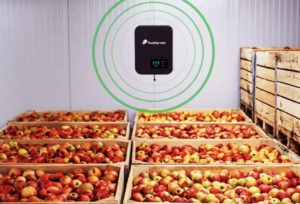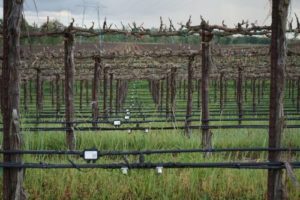Oct 26, 2022Global Impact Challenge winners announced
SVG Ventures|THRIVE, a global agrifood investment and innovation platform, has chosen 10 finalists in the 2022 THRIVE Global Impact Challenge.
The challenge is a global search for the most innovative startups advancing a net-zero future for agriculture. The 10 finalists, selected from an initial global pool of more than 500 applicants, will pitch their solutions at the conclusion of the Global Impact Summit on Nov. 17 at the San Jose McEnery Convention Center. This premier industry gathering, which is aligned with the UN’s sustainable development goals and key themes of COP27, will focus on disruptive innovation and transformational solutions that have the potential for global impact.
“Our 10 finalists represent the best of agrifood entrepreneurship from around the globe,” John Hartnett, founder and CEO of SVG Ventures|THRIVE, said in a news release. “From Nigeria and Australia, from Israel to California, these agtech and foodtech pioneers bring to the table extraordinary ideas to tackle some of the world’s most critical agricultural challenges.”
The THRIVE Global Impact Challenge covers three critical initiatives.
Increasing food security
In 2021, more than 800 million people were affected by hunger globally, according to the United Nations’ Food and Agriculture Organization. Inflation, climate change, and geopolitical conflicts are combining to drastically worsen food insecurity and malnourishment. The four finalists working to increase food security are:
-


Postharvest Technologies PostHarvest Technologies, Darlinghurst, New South Wales, Australia, created a cost-effective ethylene detection solution allowing operators in the cold supply chain to accurately forecast ripeness of produce, receive real-time alerts, and automate ethylene cleaners and other foodtech systems. This aims to reduce current food waste levels down to 5% from as much as 40%.
- Vivid Machines, Toronto, Canada, developed a multispectral computer vision platform to digitize fruit production. It captures plant-level data below the canopy and across the farm to provide real-time insights to growers for crop load management, and transparency for the supply chain to get more quality fruit in stores.
- Arugga, Jerusalem, Israel, is developing autonomous robots to treat and monitor plants in greenhouses. The company’s robots help alleviate growers’ labor shortages and costs. Arugga’s first product, pollination of greenhouse tomatoes, launched in 2021.
- Umami Meats from Singapore is building a platform for cultivated seafood production, focusing first on three popular but endangered species. The company is developing several novel, low-cost approaches to cell-based seafood.
Reducing and offsetting emissions
Nearly one-quarter of all global greenhouse gas emissions – more than eight billion metrics tons of CO2 equivalent – come from agriculture, forestry, and other land use, according to the EPA. The three finalists working to reduce or offset emissions are:
Soilgenic Technologies, Calgary, Canada, patented a new process for production of enhanced efficiency fertilizer additives. The process reduces nitrogen and phosphate fertilizer emissions into air and water without reducing fertilizer rates and crop yields – all at a significantly lower cost than existing technologies.
Kitovu Technology Company, Iseyin, Nigeria, builds climate-smart farm and post-harvest infrastructure for African agriculture. This enables smallholder farms to increase their productivity and incomes.
California Cultured, Sacramento, California, is pioneering new plant cell agtech that grows coffee and chocolate beans without the need for deforestation, slave labor and pollution.
Soil health and biodiversity


Food systems were responsible for half of the population decline in freshwater species and a staggering 70% of the decline of land animals, according to a new report by the World Wildlife Fund. The three finalists working to improve soil health and biodiversity are:
Verdi, Vancouver, Canada, is building a climate adaptation platform for agriculture. The company is starting with tools for plant-level healthcare that enable growers to de-risk water scarcity and improve crop productivity.
Biochar Now, Berthoud, Colorado, developed a process to bind toxins in a manner that makes them easier to remove from production, increasing plant yields.
ContinuumAg, Washington, Iowa, provides farmers practical methods for profitably implementing regenerative practices, becoming a catalyst for sustainable agriculture.
The THRIVE Global Impact Summit features networking opportunities, rich panel discussions, and inspiring keynote speeches from prominent industry experts on disruptive innovations and globally impactful solutions. Summit partners include ICL Planet, Bayer, BASF, Driscoll’s, Kubota, Alberta Innovates, Dairy Australia, Latrobe University, and Invest Alberta. To register for the Silicon Valley summit, visit the event website.














